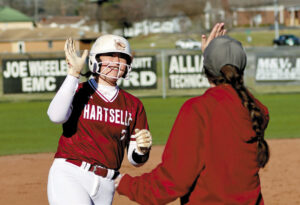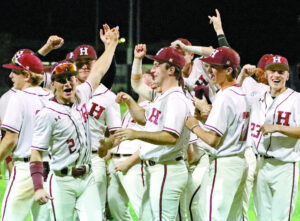Smugness of media hurts all
By Staff
Justin Schuver, Sports Editor
I'd like to change gears for a moment and write a column that only partially pertains to sports.
I was just perusing several of my favorite web sites the other day when I came across a link to a column written Aug. 4 by Nancy Clark, a sports staff writer for the Des Moines (Iowa) Register.
In her column, "Blog 'reports' lack media's credibility," Clark plays out the tired old line that the mainstream media is the sole arbiter of what is true and what is false.
She suggests if you read it in the newspaper or see it on a television newscast, then you know that it has gone through a vigorous fact-checking and proofing assembly line that internet-based media doesn't even come close to touching.
And then she writes a column that includes the sentence, "In the new 'journalism of assertion,' … information is offered with little time and little attempt to independently verify its voracity."
Now, voracity is an actual word, but it has something to do with how much food someone eats. Veracity is a word that means legitimacy and truthfulness.
Well, Ms. Clark, why didn't your line of editors and professional fact-checkers catch that one?
I'll tell you why. It's because you use a spell checker just like everyone else, and if the spell checker doesn't catch a misspelling then you simply assume that the word is correct, without bothering to check its context.
Its the kind of laziness that allows sentences like the won I aim righting now two bee printed.
The fact is that whether the information comes from an independent weblog run by some young entrepreneur out of his mother's basement, or from a multinational media organization, there is going to be some aspect of human error.
The second point I have concerning Ms. Clark's column is that the very fact it was written shows her condescending attitude toward the intelligence of her readers. Take for example, this line:
"In other words, bloggers and some radio and cable talk show hosts make up stories and spread rumors. Too often, consumers don't know the difference between these lies and mainstream news reports."
Too often? I would think that the average Joe Consumer is smart enough to realize that the vast majority of what he reads on the internet is completely or at least partially fabricated, Ms. Clark.
Unfortunately for you and me, I think he's also becoming smart enough to realize that not everything he reads in the mainstream media is completely true, either. I'm looking at you, Dan Rather, Jayson Blair and Mitch Albom.
Clark's column, rather than assuring readers that they can trust the media, instead comes off as saying, "Hey, hey! Pay attention to me! Don't trust the internet, pay attention to me! I have the press pass! Meeeeeee!"
It is true that more and more Americans each day get their news from the Internet, and it seems as though the mainstream media's reaction is to bash that independent mostly-Internet-based media any time it can.
Independent media discovered the inaccuracies in Rather's story on President Bush's service in the National Guard. Independent media uncovered the Swift Boat Veterans and their story (a group that Ms. Clark rudely brushes off as having "unsubstantiated" evidence).
Independent media was the driving force behind the recent scandal that has connected Karl Rove to outed CIA agent Valerie Plame.
Independent media has been responsible for creating activism and positive action for a variety of causes that have been mostly ignored by the mainstream media.
And if my colleagues in the mainstream media aren't careful and don't tone down their haughty arrogant "We know what's right and we're the only ones you can trust" attitude, this "new media" will do more than just take our readers.
It will take our jobs.
THREE CHEERS FOR THE UNIVERSITY OF SOUTH CAROLINA:
In last week's column, I made the comment that the NCAA was off the mark in limiting its member institutions' media guides to 208 pages. Well, this SEC school has essentially blown a huge raspberry in the face of the NCAA, and I applaud them for it.
In the mail this week I received South Carolina's media guide, and checked the number of pages – 208 exactly. However, I also received a stapled packet of regular photocopied pages that included a cover with a picture of Steve Spurrier and the words "2005 Football Media Guide Supplement."
All told, this "supplement" was another 24 pages or so and included information such as South Carolina's record against opponents and the South Carolina alumni in the NFL.
This is information that would have been in the regular media guide before the NCAA's ridiculous ruling.
And by mailing this "supplement" along with the regular media guide, South Carolina has essentially both kept the NCAA's guidelines (Their media guide is exactly 208 pages.) and ignored them completely.
I hope next year's "supplement" is 200 pages. Well done, South Carolina!
LET ME HEAR YOUR FEEDBACK: E-mail me at justin.schuver@hartselleenquirer.com.







